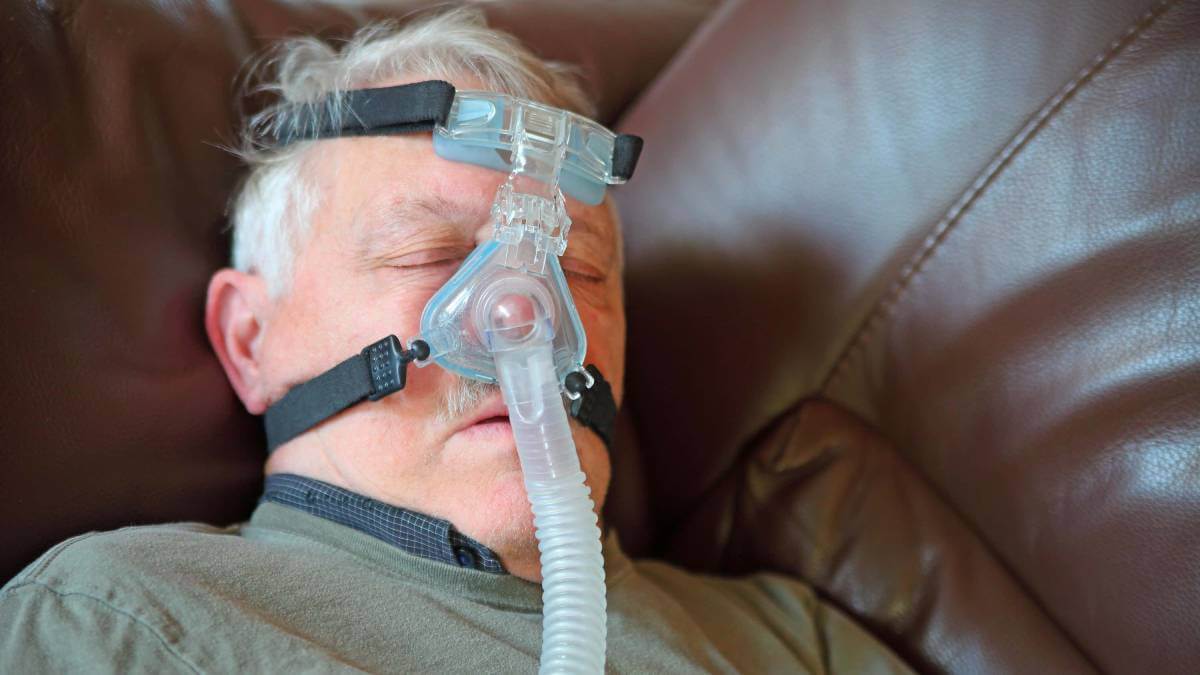If your partner snores, you might notice that things get a whole lot worse after they’ve had a few drinks.
This can make life a misery for any sleep-disrupted partners. Experts suggest many snorers are more likely to snore when lying on their back, and when people have been drinking, they’re harder to move onto their side.
A 2022 study of more than 2000 adults found 83 per cent of Australians snore. In addition, 57 per cent of these are disrupting their sleep cycle by waking themselves up with their snoring. This happens, on average, 2.24 times per night.
Eighty-six per cent of snorers have had someone else complain to them about their problem and 47 per cent of offenders worry about waking someone else up.
The research, commissioned by Aussie designed-and-made nasal dilator Mute Snoring, showed half (50 per cent) of Australians wish they didn’t snore and nearly two-thirds (60 per cent) are aware snoring can cause health issues and have a huge impact on an individual’s life. This includes not getting enough quality sleep.
But why does alcohol make things worse?
View this post on Instagram
“When you’re awake, muscles in your nose, mouth and throat keep your airways open,” explains Amy Gallagher, a senior sleep physiologist at the Cromwell Hospital, London.
“But when you sleep, these muscles relax and can lead to airways narrowing. As air passes through, it can cause the surrounding tissues to vibrate, resulting in the sound we call snoring.”
A proportion of these snorers suffer from obstructive sleep apnoea (OSA), where there’s a greater degree of airway narrowing.
“Usually, the louder the snoring, the greater the degree of narrowing, sometimes with total blockage of airflow,” says Professor Ram Dhillon, a consultant ENT surgeon with a special interest in snoring and OSA. “This blockage is termed an apnoea if it’s 10 seconds or longer in duration.”
Alcohol plays a role in both snoring and OSA, say the experts. Prof. Dhillon explains good tension in the muscles around the upper airway keep it open, but warns: “Sleep reduces this tension, increasing the likelihood of narrowing to produce snoring, and total blockage, resulting in apnoea. Alcohol consumption enhances the relaxation and reduces the tension of these upper airway muscles and tissues and worsens the severity of the snoring, and can unmask apnoea and/or also increase its severity.”
And Ms Gallagher adds: “Alcohol has a negative impact on the quality of your sleep and can make snoring worse, or if you don’t usually snore it can mean that you do.”
So what can you do to stop snoring? Here’s the experts’ advice.
Avoid alcohol
While not drinking won’t necessarily stop you snoring, it’s likely to reduce it.
Prof. Dhillon says: “The advice is to avoid alcohol totally if you snore or have been diagnosed with OSA. If you suffer from snoring made worse with alcohol and have disruptive sleep, then a diagnosis of obstructive sleep apnoea may need to be considered.”
And if you don’t want to give up alcohol completely, then both experts warn it’s best to at least not drink close to bedtime.
“Certainly do not drink alcohol for at least four hours before sleep,” advises Prof. Dhillon, and Ms Gallagher stresses: “Don’t drink alcohol late at night. Alcohol relaxes your muscles, making your airways more likely to narrow. You might also snore louder if you’ve been drinking because your throat is dry, as alcohol makes you dehydrated.”
Quit smoking
Smoking irritates the throat and nasal passage, and Ms Gallagher explains: “This irritation can cause swelling and dryness which may lead to snoring. Smoking is also associated with congestion and this can further worsen breathing.”
Sleep on your side
Sleeping on your back makes you more likely to snore, says Ms Gallagher.
“Sleeping on your side is the best sleep position to help prevent snoring, because it reduces the compression of your airways,” she adds.
Maintain a healthy weight
Prof. Dhillon suggests people who are excessively overweight, particularly with a BMI of 35 or above, and/or with a neck size of 16.5 inches or greater, are more likely to snore.
Ms Gallagher explains: “If you’re overweight, you may have extra tissue in and around your throat which contributes to snoring. Leading an active and healthy lifestyle and maintaining an ideal weight can reduce pressure on your airways and helps stop snoring.”
Elevate your pillow
By raising your head around four inches on your pillow, pressure is removed from the throat and the nasal passage opens up, says Ms Gallagher, who explains: “This forces your tongue and jaw forward and helps to reduce snoring.”

Try anti-snoring treatments
Prof. Dhillon recommends treatments including mandibular advancement devices, which hold the lower jaw and tongue forward making more space to breathe and prevent snoring, a nocturnal mouth guard, which holds the jaw in the right position to stop snoring, or continuous positive airway pressure (CPAP), which provides a continuous flow of air into the upper airway via a face mask.
Do you or your partner snore? Does alcohol make it worse? Let us know in the comments section below.
Also read: How age could be affecting your sleep
– With PA
Disclaimer: This article contains general information about health issues and is not advice. For health advice, consult your medical practitioner.


Also, if you drink alcohol just before going to sleep, not only does it relax the muscles in your throat & make the snoring worse, but you’re at risk of vomiting in your sleep, even if only a little, & aspirating some of this back into your lungs!